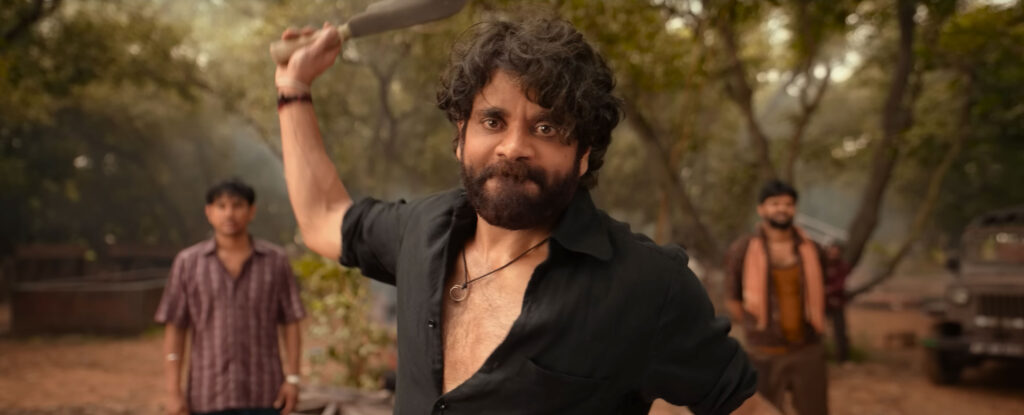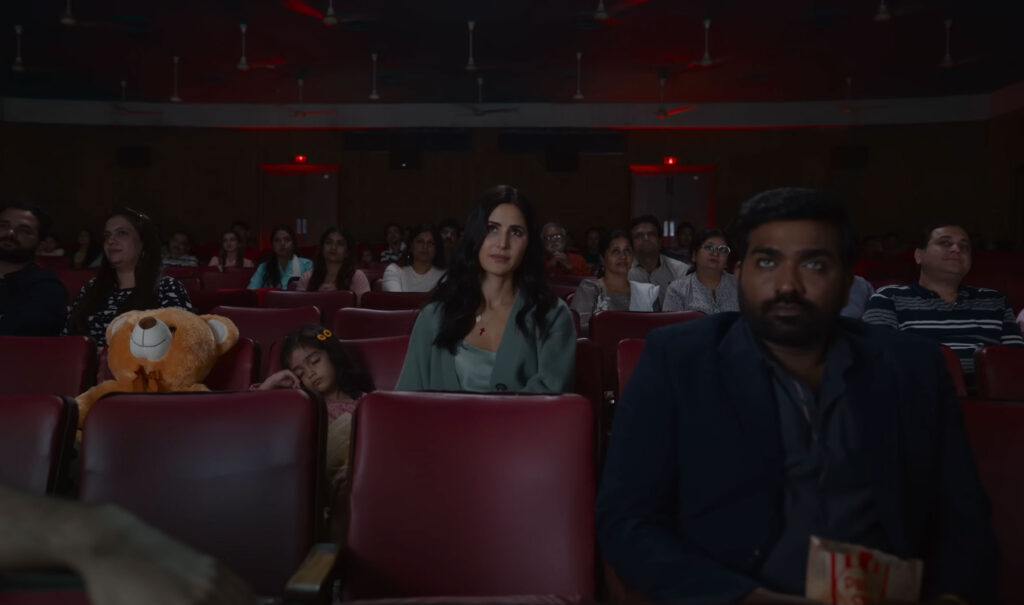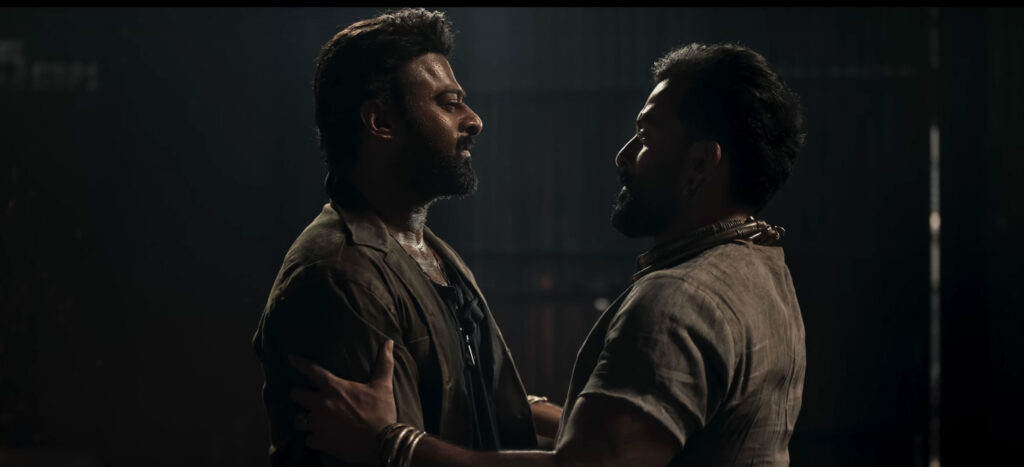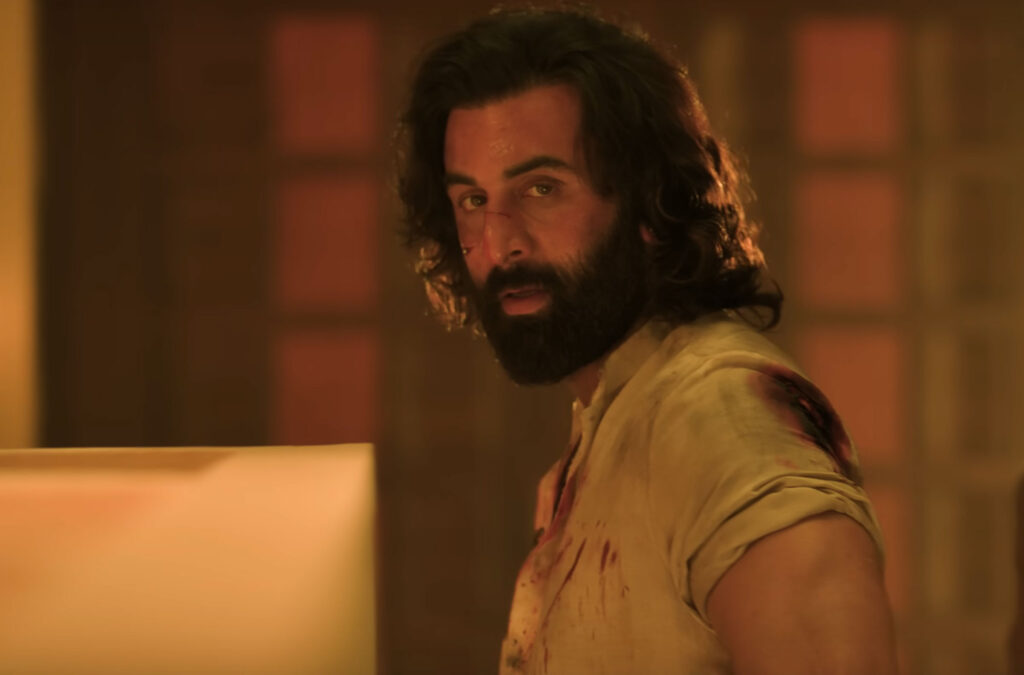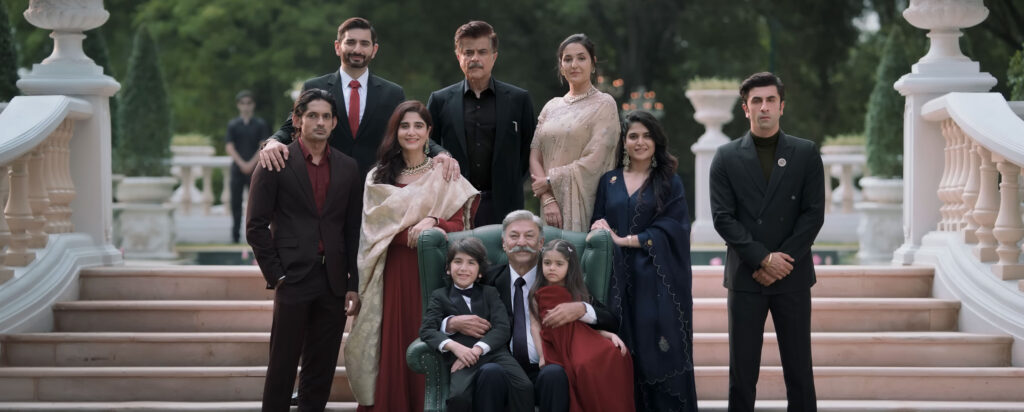February 3, 2024
by Carla Hay

Directed by R. Ravikumar
Tamil with subtitles
Culture Representation: Taking place in India’s Tamil Nadu state, the sci-fi film “Fighter” features a predominantly Indian cast of characters (with a few white people) representing the working-class, middle-class and wealthy.
Culture Clash: A villager and his two friends discover and protect an outer-space alien that a corrupt scientist wants to capture because of the alien’s access to deadly mineral that the scientist want to use to make weapons of mass destruction.
Culture Audience: “Ayalaan” will appeal primarily to people who are fans of stories about aliens from outer space, no matter how stupid and long-winded the stories are.

“Ayalaan” is a sloppy ripoff of the 1982 classic sci-fi film E.T., but with the outer-space alien befriending adults instead of children, as the movie’s ‘heroes’ try to prevent the alien from being captured. This misguided film is just time-wasting idiocy. “Ayalaan” has a very thin and flimsy plot that is dragged and stretched out to extremely irritating levels during the movie’s 155 minutes.
Written and directed by R. Ravikumar, “Ayalaan” (which means “alien” in Tamil) exposes itself very early in the movie to be a cinematic abomination of horrible dialogue, tacky visual effects, and bad acting. It would be slightly inaccurate to say that “Ayalaan” wears out its welcome because this type of torturous drivel isn’t welcome in the first place, if viewers are expecting anything that’s reasonably entertaining. There is almost no imagination in this extremely derivative and annoying movie.
The main protagonist in “Ayalaan” (which takes place in the India’s Tamil Nadu state) is a cheerful but dimwitted man in his late 30s named Tamizh (played by Sivakarthikeyan), who lives in a rural village, where he loves and respects the environment. Tamizh sells mineral water to people in the village. Tamizh’s social circle includes his two best friends—buffoonish Tyson (played by Yogi Babu) and neurotic Sugirtharaja (played by Karunakaran)—as well as Tamizh’s middle-aged, mute roommate (played by Kothandam), who doesn’t have a name in the movie.
A corrupt scientist/business mogul named Aryan (played by Sharad Kelkar), who is based in the city of Chennai, owns Aryan Industries, which looks like a combination of a corporation and a scientific research center. Aryan is obsessed with finding a rare mineral called Sparc (which looks like a glowing blue rock), which Aryan believes has the most powerful energy source in the world. Predictably, Aryan wants to get possession of Sparc to extract the energy source so that he can use it to make weapons of mass destruction. Aryan’s most loyal and most ruthless cohort is Eliza (played by Isha Koppikara), who’s supposed to be a scientist but who acts more like a combat criminal.
Meanwhile, a child-sized green alien, who has the voice of adult male human (voiced by Siddharth), arrives by spaceship from outer space to put a stop to Aryan’s plan. Before he left, the alien was warned by his look-alike girlfriend not to eat the the junk food on Earth. “Ayalaan” mentions that this is the alien’s 324th secret visit to Earth. The alien has the ability to make itself invisible whenever it wants.
The alien is captured by Aryan’s accomplices and is brought to a secret lab at Ayran Industries. The alien is kept in a giant glass cylinder. Why does Ayran want to keep this alien imprisoned? Somehow, Aryan finds out that this alien knows where to find Sparc, so Aryan want to force the alien to tell him where Sparc is.
But that doesn’t happen in this scene. Instead, when Aryan puts his hands on the cylinder, his hands get stuck. The alien uses it as an opportunity to emit a green gas that fills the cylinder before breaking the glass and escaping. The green gas floats out of the cylinder. Whatever is in the gas causes Aryan, Eliza and the others to lose consciousnesses.
Meanwhile, Tamizh finds himself at a science expo for middle schoolers. He has a crush on a science teacher named Tara (played by Rakul Preet Singh), so he is thrilled to see her there. One of the first exhibits that catches Tamizh’s attention is called “Alien World,” from a boy who’s dressed as a green alien. Tamizh starts a casual conversation with the boy, who says his name is Tattoo.
A certain mishap at the expo causes a big fire, where the alien shows up and catches Tara before she falls to the ground. (Don’t ask. It won’t be the last you’ll see of Tara, because she’s the obvious love interest of Tamizh.) Most of the people in the building evacuate in time, but Tamizh is stuck in the building. He sees the alien trapped underneath a fallen display case and rescues it. Tamizh and the alien manage to escape before the fire can kill them.
Tamizh thinks the alien is the boy Tattoo whom Tamizh met earlier. While he is driving the alien to a hospital, Tamizh keeps thinking that a human boy named Tattoo is in his truck with him, even though the alien is obviously not a human. This foolishness goes on for several minutes until Tamizh sees the alien become invisible. It’s only then that Tamizh understands that he has a non-human creature with him in the truck. He continues to call this creature Tattoo after he brings it home and introduces the alien to his friends.
The rest of “Ayalaan” has an increasingly ridiculous series of events. Just when the movie looks like it could have ended one way, there are insipid plot twists that prolong this appallingly jumbled and vapid movie. The alien is neither fun nor interesting, while all the human characters are either generic or very irritating, with performances from the cast members to match. Oscar-winning “Slumdog Millionaire” composer A.R. Rahman wrote the music for this junkpile movie, which just goes to show that having an Oscar does not make someone immune to working on low-quality dreck.
As an example of the shoddy filmmaking, there’s a subplot about an American named Dexter Williams (played by David Broughton-Davies), a UFO enthusiast who saw the alien during one of the alien’s previous visits to Earth. Dexter speaks Tamil in the film, but it’s obviously an overdubbed voice because the actor spoke English while filming his scenes. (People who can read lips while someone is talking can easily spot this discrepancy.)
Dexter has a hard time convincing people that his alien sightings are real. He’s determined to find the alien again and then track it down. Somehow, Aryan finds out that Dexter knows that the alien has landed on Earth again. And so, Aryan summons Dexter to India, where Dexter is enlisted to help find the alien. It’s as ridiculous as it sounds.
And did we mention that Tattoo has the ability to heal human injuries and diseases, just by placing his hands on the affected areas? The movie takes a detour into a vapid subplot about how Tattoo becomes invisible and does these healings when he’s with Tamizh. And it isn’t long before Tamizh gets credit for these healings and people think he has superpowers.
During all of these messy subplots, there are chase scenes, emotional meltdowns, and the usual mindless shenanigans that you would expect to find in a substandard “alien on the loose on Earth” movie, where the “heroes” try to help the alien find its way back to its home planet. There are also some out-of-place musical numbers that act as filler for this already bloated movie. In “Ayalaan,” everything is so dialed up to the most asinine levels, if any outer-space aliens saw this garbage film, then they’d want to fly far away on a spaceship and go home too.
KJR Studios released “Ayalaan” in select U.S. cinemas and in India on January 12, 2024.



